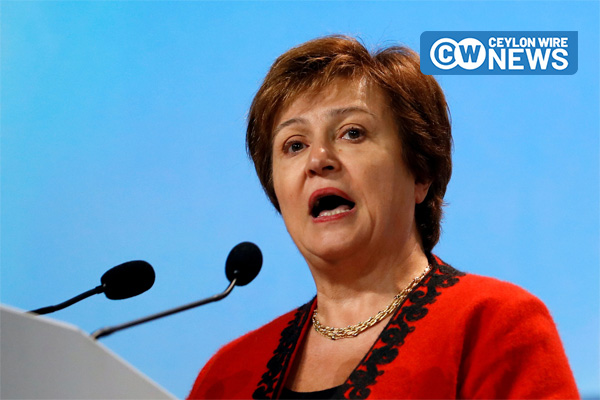IMF Managing Director Kristalina Georgieva on Thursday (12) said that the G20 Common Framework has been slow to deliver to countries that turn to it for support.
Speaking at a press briefing during the 2023 IMF and World Bank Annual Meetings the MD said however, there is an encouraging sign that the time taken to reach an agreement among the creditors is shortening with every step.
“It took eleven months for the creditors of Chad to provide the fund with financial assurances needed for us (IMF) to help the country. From the staff-level agreement to the board, it took eleven months. It took nine months for Zambia, six months for Sri Lanka, five months for Ghana,” she elaborated.
The Common Framework is new, she said, while adding that it brings together a very diverse group of creditors, the traditional creditors – The Paris Club – and new creditors – China, Saudi Arabia, India, Brazil, and the Emirates, and a very diverse group of private creditors.
“My plea is for pressure and speed for efficiency, but don’t throw the towel on the common framework. Because, if we lose it, then we are back in a much less predictable environment,” she noted.
She went on to note that debt consolation requires all creditors to agree.
“Having a cacophony of creditors and their different configurations in every single case makes this excruciatingly difficult. Therefore, in a case by case approach – when we identify the creditors – the creditor must come together, form a committee, and then we as the institution – the IMF together with the World Bank – we provide the parameters on what they need to agree on. This is the way debt restructuring is delivered today,” further detailed the managing director of the IMF.
She said the world must start to think creatively, how more can be done.
“When COVID hit, we came up with the innovation. It was to use the Catastrophe Containment and Relief Trust (CCRT) to give to the poorest members, so that they do not have to serve their loans to the IMF for two-years. USD 1 billion in defacto relief provided by the IMF with the contributions of the donors,” she added.
She said it is time to think to better align debt restructuring, debt relief with the impact of the climate crisis.
“Solutions that have not existed before can help countries,” she noted while stressing the need for new thinking to solve the issues of countries.
She said that the Global Sovereign Debt Roundtable is an avenue to accelerate restructuring, and since the debt and creditor landscapes have changed, the traditional creditors, new creditors, private sector creditors, and representatives of the debtor countries will meet to make progress in debt restructuring.









